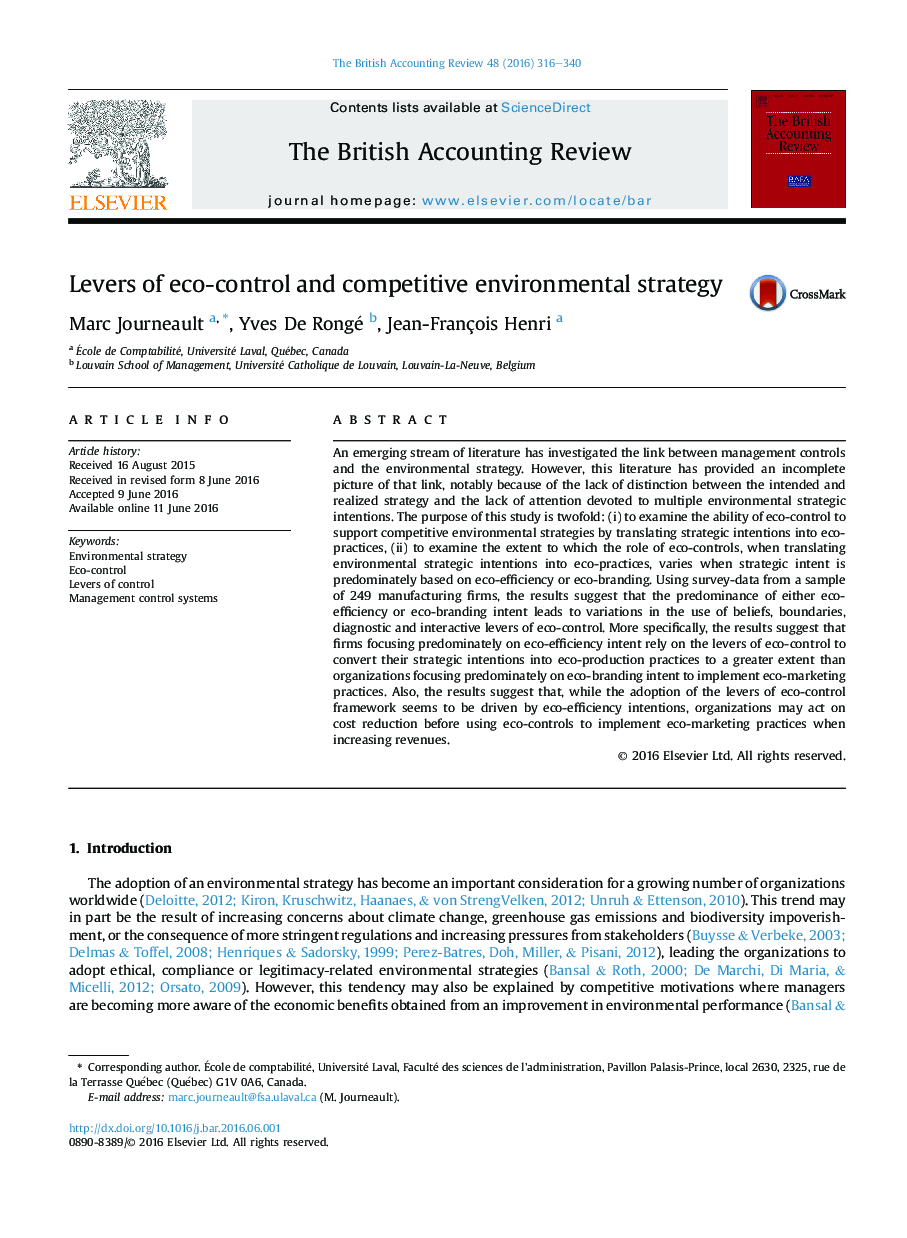| Article ID | Journal | Published Year | Pages | File Type |
|---|---|---|---|---|
| 1003934 | The British Accounting Review | 2016 | 25 Pages |
An emerging stream of literature has investigated the link between management controls and the environmental strategy. However, this literature has provided an incomplete picture of that link, notably because of the lack of distinction between the intended and realized strategy and the lack of attention devoted to multiple environmental strategic intentions. The purpose of this study is twofold: (i) to examine the ability of eco-control to support competitive environmental strategies by translating strategic intentions into eco-practices, (ii) to examine the extent to which the role of eco-controls, when translating environmental strategic intentions into eco-practices, varies when strategic intent is predominately based on eco-efficiency or eco-branding. Using survey-data from a sample of 249 manufacturing firms, the results suggest that the predominance of either eco-efficiency or eco-branding intent leads to variations in the use of beliefs, boundaries, diagnostic and interactive levers of eco-control. More specifically, the results suggest that firms focusing predominately on eco-efficiency intent rely on the levers of eco-control to convert their strategic intentions into eco-production practices to a greater extent than organizations focusing predominately on eco-branding intent to implement eco-marketing practices. Also, the results suggest that, while the adoption of the levers of eco-control framework seems to be driven by eco-efficiency intentions, organizations may act on cost reduction before using eco-controls to implement eco-marketing practices when increasing revenues.
